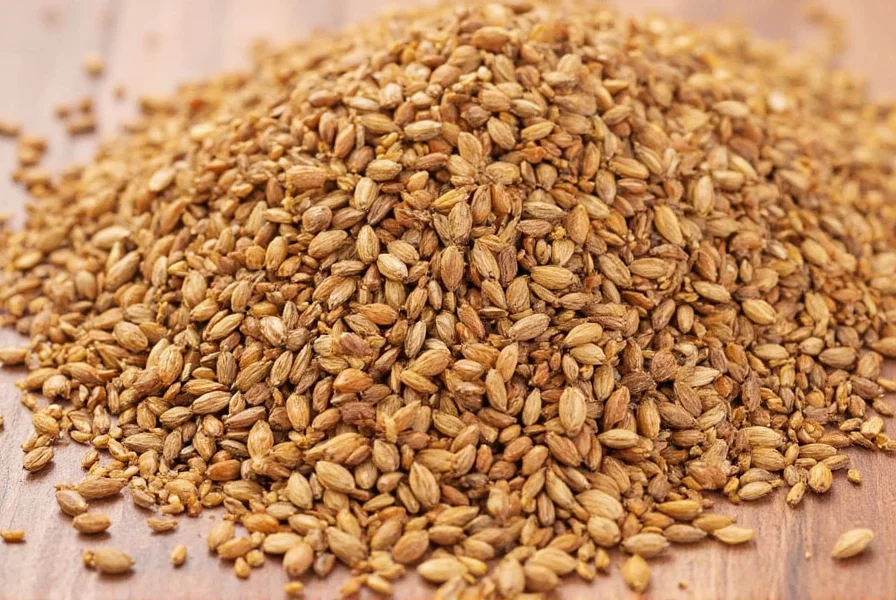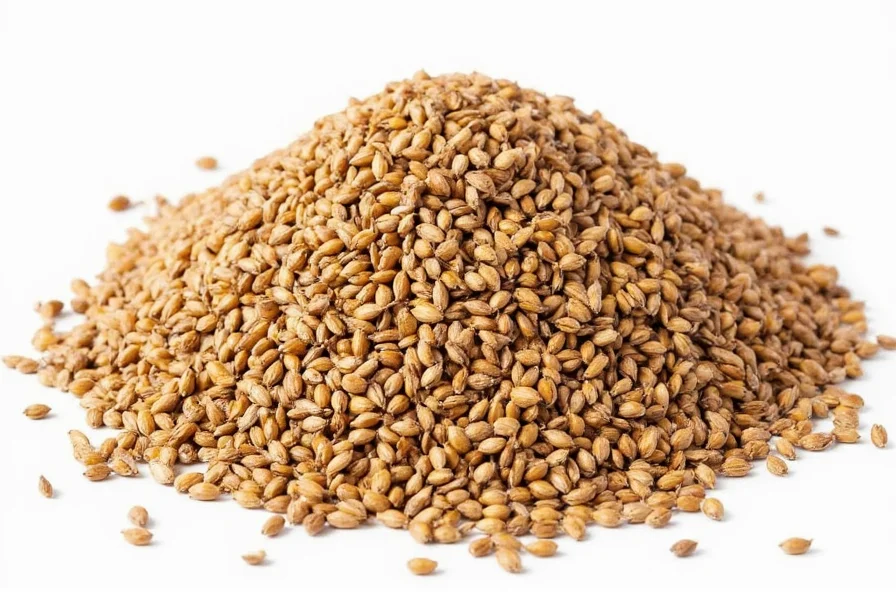Many people mistakenly say 'CUH-min' or 'KYOO-min,' but the standard English pronunciation rhymes with 'dozen' or 'frozen.' Understanding the proper cumin seeds pronunciation helps avoid confusion when discussing recipes, purchasing spices, or communicating with fellow cooking enthusiasts.
Phonetic Breakdown of Cumin Seeds Pronunciation
The word "cumin" follows a straightforward phonetic pattern once you know the rules:
| Syllable | Phonetic Spelling | Sound Description |
|---|---|---|
| Cu | KOO | Like the "oo" in "moon" or "spoon" |
| min | min | Like the "in" in "win" or "spin" |
The International Phonetic Alphabet (IPA) representation is /ˈkuːmɪn/, with the stress mark (ˈ) indicating that the emphasis falls on the first syllable.

Common Mispronunciations to Avoid
Several incorrect pronunciations of cumin seeds have become widespread. Being aware of these mistakes helps ensure clear communication:
- 'CUH-min' (/ˈkʌmɪn/) - Adding a short "uh" sound that doesn't exist in the proper pronunciation
- 'KYOO-min' (/kjuːmɪn/) - Inserting a "y" sound that changes the word entirely
- 'COO-min' (/kuːmɪn/) - While closer, this lacks the proper emphasis on the first syllable
- 'CUM-in' (/ˈkʌmɪn/) - Giving equal stress to both syllables rather than emphasizing the first
These mispronunciations often occur because English speakers apply familiar sound patterns to unfamiliar words. The correct cumin seeds pronunciation follows the same pattern as words like "human" and "demean," where the "u" makes a long "oo" sound.
Origin of the Word and Its Pronunciation
Understanding the etymology of "cumin" explains why it's pronounced the way it is. The word entered English through Latin cuminum and Greek kyminon, ultimately tracing back to the Hebrew word камmōn. Despite these origins, English pronunciation evolved to the current "KOO-min" form.
In botanical and scientific contexts, the plant name Cuminum cyminum is pronounced with a "kyoo" sound (KYOO-min-um), which contributes to the confusion. However, when referring to the spice itself in everyday culinary contexts, "KOO-min" remains the standard pronunciation.
Regional Variations in Cumin Pronunciation
While "KOO-min" is the predominant pronunciation in American and British English, some regional variations exist:
- American English: Consistently "KOO-min" (/ˈkuːmɪn/)
- British English: Primarily "KOO-min," though some older speakers may use "KYOO-min"
- Indian English: Often "KOO-min" but sometimes closer to the Hindi pronunciation "jeera" (pronounced "jee-rah") when referring to the spice
- Australian English: Follows the British pattern with "KOO-min" being most common
When discussing cumin seeds pronunciation in international culinary contexts, using the "KOO-min" pronunciation ensures the broadest understanding.
Practical Usage Examples
Hearing the word in context helps solidify the correct pronunciation. Here are examples of proper usage:
- "For this recipe, you'll need one teaspoon of freshly ground KOO-min seeds."
- "The distinctive flavor of KOO-min enhances many Middle Eastern and Indian dishes."
- "When toasting KOO-min seeds, watch carefully as they can burn quickly."
- "Many people confuse the pronunciation of coriander and KOO-min, but they're quite different spices."
Tips for Remembering the Correct Pronunciation
Here are effective techniques to help you remember the proper cumin seeds pronunciation:
- Rhyme association: Remember that cumin rhymes with "dozen" - "I need a dozen KOO-min seeds for this recipe."
- Syllable emphasis: Practice saying "KOO-min" with clear emphasis on the first syllable: KOO-min (not ku-MIN)
- Vowel sound: Think of the "u" as making the same sound as in "human" or "demean"
- Common mistake avoidance: Consciously avoid adding a "y" sound at the beginning
Related Culinary Terms and Their Pronunciations
When discussing cumin seeds pronunciation, you'll often encounter these related terms. Knowing their correct pronunciations creates a more professional culinary vocabulary:
- Coriander: kuh-RYE-uh-der (/ˌkɒriˈændər/)
- Cilantro: si-LAN-tro (/sɪˈlɑːntroʊ/)
- Turmeric: TUR-muh-rik (/ˈtɜːrmərɪk/)
- Paprika: puh-PREE-kuh (/pəˈpriːkə/)
- Saffron: SAF-ron (/ˈsæfrən/)
Mastering these pronunciations alongside cumin seeds pronunciation builds confidence when discussing spices and recipes with other cooking enthusiasts or professionals.
Frequently Asked Questions
How do you pronounce cumin seeds in English?
Cumin seeds are pronounced 'KOO-min' (/ˈkuːmɪn/), with the emphasis on the first syllable. The 'u' makes a long 'oo' sound like in 'moon' or 'spoon', and the second syllable rhymes with 'in' as in 'win'.
Why do people often mispronounce cumin as 'CUH-min' or 'KYOO-min'?
People often mispronounce cumin because they apply familiar English sound patterns to this less common word. The 'CUH-min' error comes from expecting a short vowel sound, while 'KYOO-min' results from incorrectly adding a 'y' sound, possibly influenced by the scientific name Cuminum cyminum which is pronounced with a 'kyoo' sound.
Is there a difference between cumin and jeera pronunciation?
Yes, there is a difference. 'Cumin' in English is pronounced 'KOO-min' (/ˈkuːmɪn/), while 'jeera' is the Hindi word for the same spice, pronounced 'jee-rah' (/ˈdʒiːrə/). In Indian cooking contexts, both terms refer to the same spice but with different pronunciations based on the language being used.
Does the pronunciation of cumin vary between American and British English?
The pronunciation of cumin is quite consistent between American and British English, with both predominantly using 'KOO-min' (/ˈkuːmɪn/). Some older British speakers might occasionally use 'KYOO-min', but 'KOO-min' remains the standard in both dialects for contemporary usage.
How can I remember the correct pronunciation of cumin seeds?
To remember the correct pronunciation, use these memory aids: 1) Cumin rhymes with 'dozen' (KOO-min/dozen), 2) Think of the 'u' making the same sound as in 'human' or 'demean', 3) Practice saying 'KOO-min' with clear emphasis on the first syllable, and 4) Avoid adding a 'y' sound at the beginning of the word.











 浙公网安备
33010002000092号
浙公网安备
33010002000092号 浙B2-20120091-4
浙B2-20120091-4